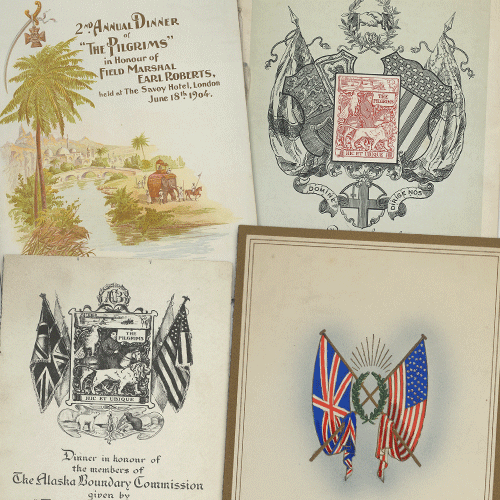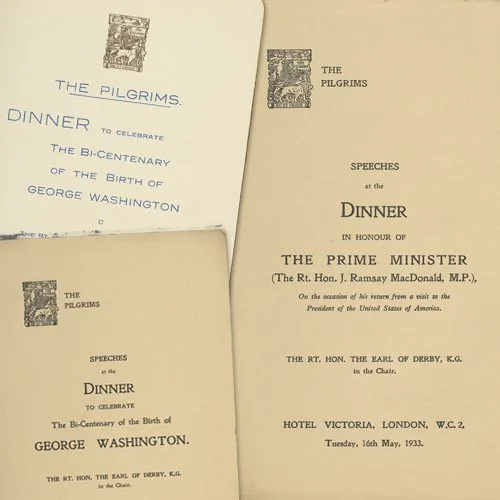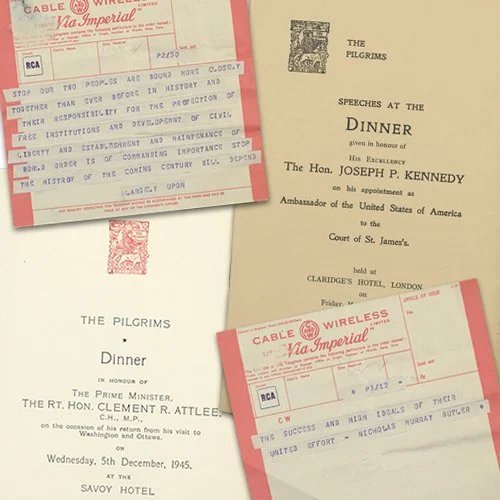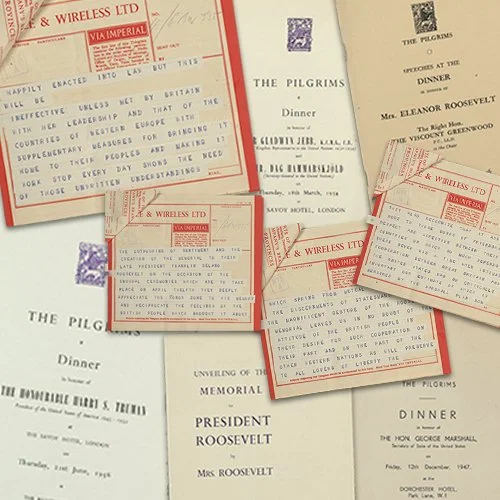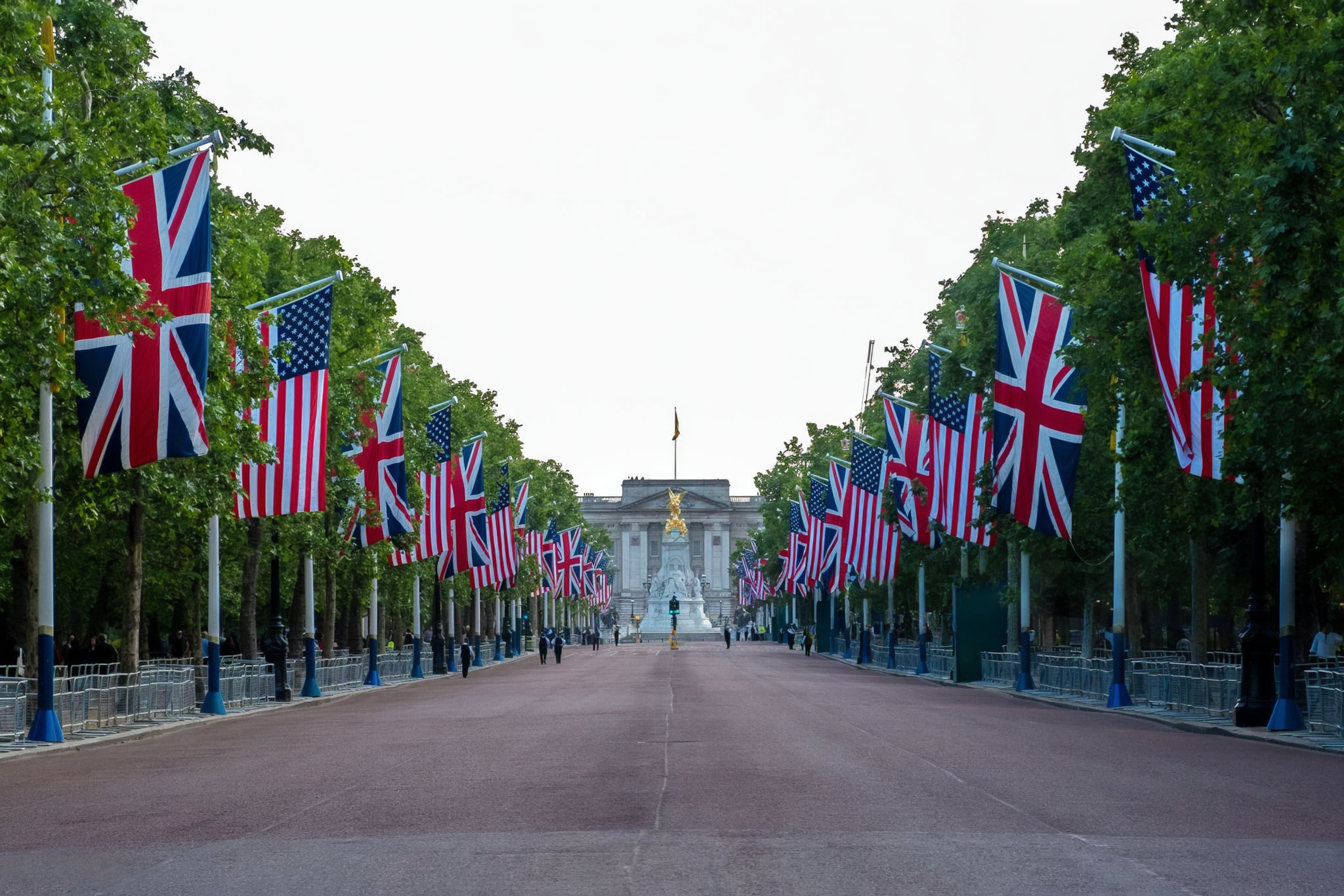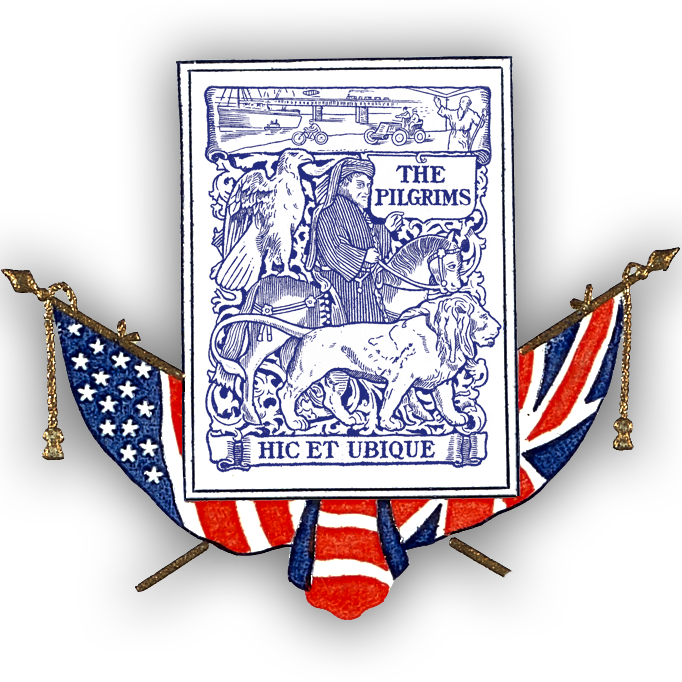-
![1902–1906: Founding Principles]()
1902–1906: Founding Principles
Established in 1902, The Pilgrims of Great Britain became the first Anglo-American society, created to unite the two great trading nations of the age in friendship and understanding. Granted the unique honour of toasting both His Majesty the King and the President of the United States, the Society also hosted the first public address of each new U.S. Ambassador to London — a tradition mirrored by The Pilgrims of the United States (1903).
-
![1907–1913: Strengthening Foundations]()
1907–1913: Strengthening Foundations
As its influence grew, the Society welcomed Prime Ministers of the Dominions and leading figures such as Mark Twain and Sir Ernest Shackleton. Hosting delegates of the International Naval Conference, The Pilgrims helped shape principles of maritime cooperation that would endure through the Great War.
-
![1914–1918: The Great War]()
1914–1918: The Great War
During the First World War, The Pilgrims strengthened ties between Britain and the U.S., hosting senior American officials and supporting Allied recruitment in New York. When the war ended, members gathered in London for a Thanksgiving Luncheon to celebrate victory and renewed unity across the Atlantic.
-
![1919–1939: An Enduring Partnership Tested]()
1919–1939: An Enduring Partnership Tested
In the interwar years, The Pilgrims nurtured the growing Anglo-American partnership. During the Great Depression, the Society honoured philanthropist Edward Harkness, whose endowment founded The Pilgrim Trust, supporting social welfare and cultural preservation. Members also helped establish the Council on Foreign Relations, advancing a new era of international dialogue.
-
![1939–1945: Supporting the Allied Cause]()
1939–1945: Supporting the Allied Cause
As Britain faced war again, The Pilgrims supported transatlantic understanding. Amid the Blitz, Churchill addressed members alongside both nations’ ambassadors, affirming a shared Allied purpose. The Society raised U.S. funds for mobile canteens in London and was later honoured by Prime Minister Attlee at a Victory Dinner celebrating the AngloAmerican alliance.
-
![1945–1970s: Promoting Peace and Cultural Exchange]()
1945–1970s: Promoting Peace and Cultural Exchange
In the post-war years, The Pilgrims marked its fiftieth anniversary by unveiling the Franklin D. Roosevelt statue in Grosvenor Square, attended by Princess Elizabeth and Prince Philip. The Society hosted leaders such as George Marshall, Dean Acheson, and Dag Hammarskjöld, championing international cooperation. Dinners honoured Harry Truman, Dwight D. Eisenhower, and rising figures like Richard Nixon and Ronald Reagan, as well as cultural icons Leonard Bernstein and university presidents from Harvard and Yale.
-
![1970s: Royal Patronage]()
1970s: Royal Patronage
Royal ties were deepened with visits from Queen Elizabeth, The Queen Mother in 1976 and Prince Charles in 1978, reaffirming the Society’s close connection to the Crown and its enduring spirit of fellowship with a view to its future royal patronage.
-
![1980s–1990s: Realpolitik and the Special Relationship]()
1980s–1990s: Realpolitik and the Special Relationship
Amid Cold War tensions, The Pilgrims convened key figures — including Prime Minister Margaret Thatcher, Henry Kissinger, and George Shultz — to discuss Anglo-American strategy. The Society also welcomed U.S. Supreme Court Justices William Rehnquist and Sandra Day O’Connor, strengthening parliamentary dialogue and cooperation.
-
![2000–Present: A New Millennium and the Essential Relationship]()
2000–Present: A New Millennium and the Essential Relationship
In the new Millenium, The Pilgrims remained a forum for insight and diplomacy, hosting figures such as Sir Jeremy Greenstock, Baroness Manningham-Buller, and General David Petraeus. Receptions at Buckingham Palace and dinners in honour of The Princess Royal reaffirmed royal ties, while successive U.S. Ambassadors — Robert Tuttle, Matthew Barzun, Woody Johnson, and Jane Hartley — continued the Society’s legacy of transatlantic dialogue.
-
![The Pilgrims Today]()
The Pilgrims Today
For more than a century, The Pilgrims has united leaders from both sides of the Atlantic to strengthen the enduring bonds between Great Britain and the United States. Together with The Pilgrims of the United States, the Society continues to advance the shared ideals and friendships that define the Special Relationship — a fellowship of history, trust, and purpose.
